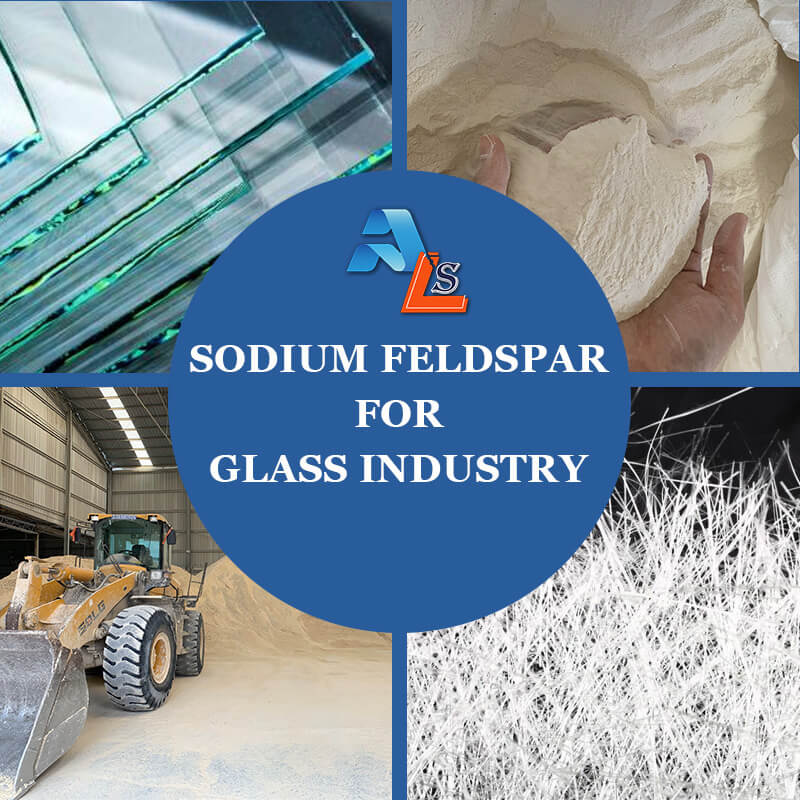Sodium feldspar, a crucial component in glass formulations, plays a multifaceted role in influencing the properties and characteristics of glass. Comprising a significant portion of glass mixtures, sodium feldspar’s composition with high alumina content and low iron levels proves pivotal in reducing the need for alkalis. This attribute not only economizes the use of other alkali sources but also stabilizes the chemical balance essential for the glassmaking process.

One of sodium feldspar’s distinctive attributes lies in its gradual dissolution into glass, which contrasts with other components that dissolve more rapidly. This slow fusion process effectively mitigates the risk of crystallization during glass formation, a phenomenon that can compromise the integrity of the final product. By minimizing the formation of crystals within the molten glass, sodium feldspar contributes significantly to maintaining the glass’s uniformity and strength.
Moreover, sodium feldspar exhibits a low tendency towards crystallization itself, thereby enhancing its utility in glassmaking. This characteristic enables manufacturers to exert greater control over the viscosity of the molten glass, a critical factor in shaping and manipulating the material during production. The ability to fine-tune viscosity facilitates the creation of glass products with desired textures, transparency levels, and structural properties, catering to diverse industrial and artistic applications.
Beyond its technical benefits, sodium feldspar also plays a role in environmental sustainability within the glass industry. By reducing the reliance on alkali additives and optimizing the melting process, manufacturers can achieve more efficient energy consumption and lower carbon emissions. This aligns with broader efforts in the manufacturing sector to enhance resource efficiency and minimize ecological footprint.
Furthermore, the global distribution and geological abundance of sodium feldspar make it a readily accessible raw material for glassmakers worldwide. Its availability ensures consistent supply chains and supports the scalability of glass production operations, meeting the demands of various market segments from architectural glazing to intricate glass artworks.
In conclusion, sodium feldspar stands as an indispensable component in modern glassmaking, offering a unique combination of chemical stability, controlled melting properties, and environmental advantages. Its role extends beyond mere chemical composition to encompass economic efficiency, product quality enhancement, and sustainability in industrial practices. As innovations continue to evolve in materials science and manufacturing technologies, sodium feldspar remains at the forefront, enabling the creation of diverse, durable, and aesthetically pleasing glass products that enrich our daily lives.

